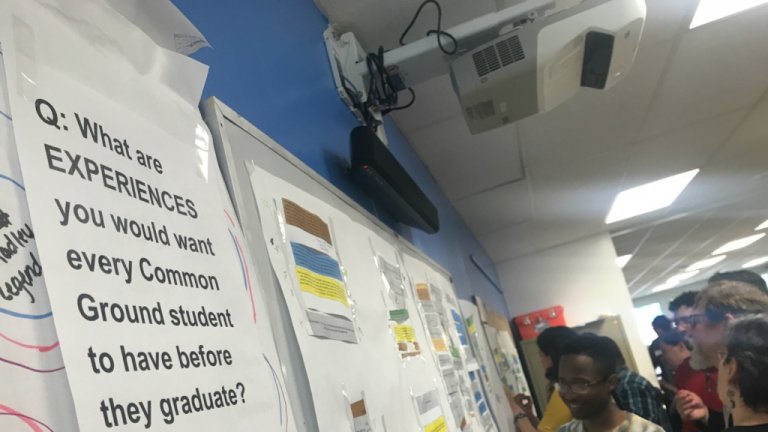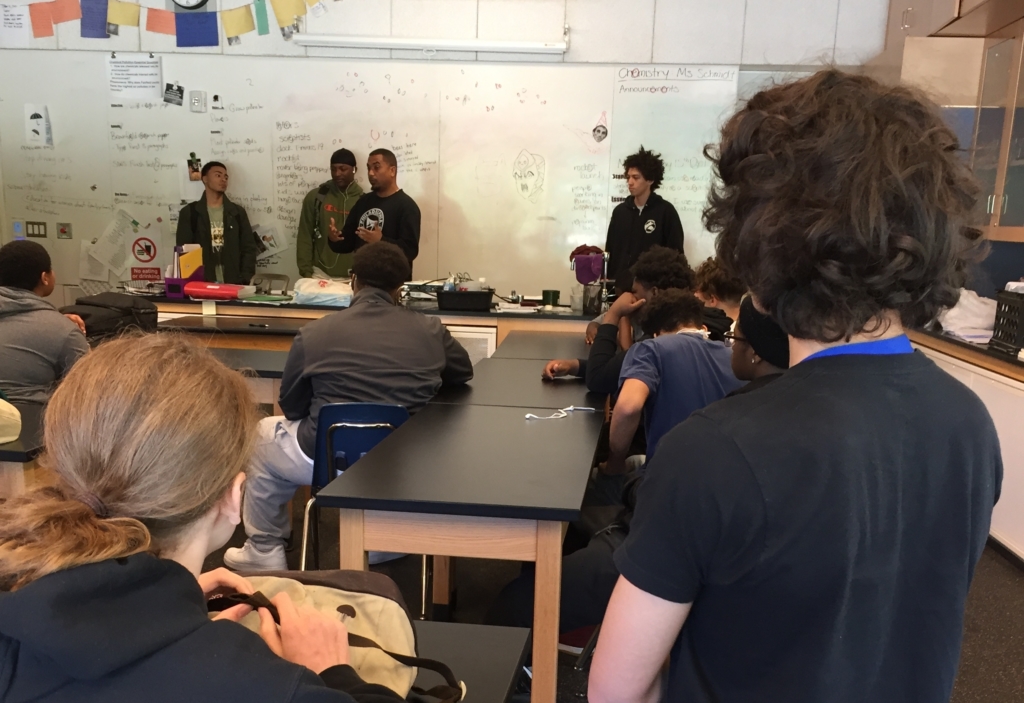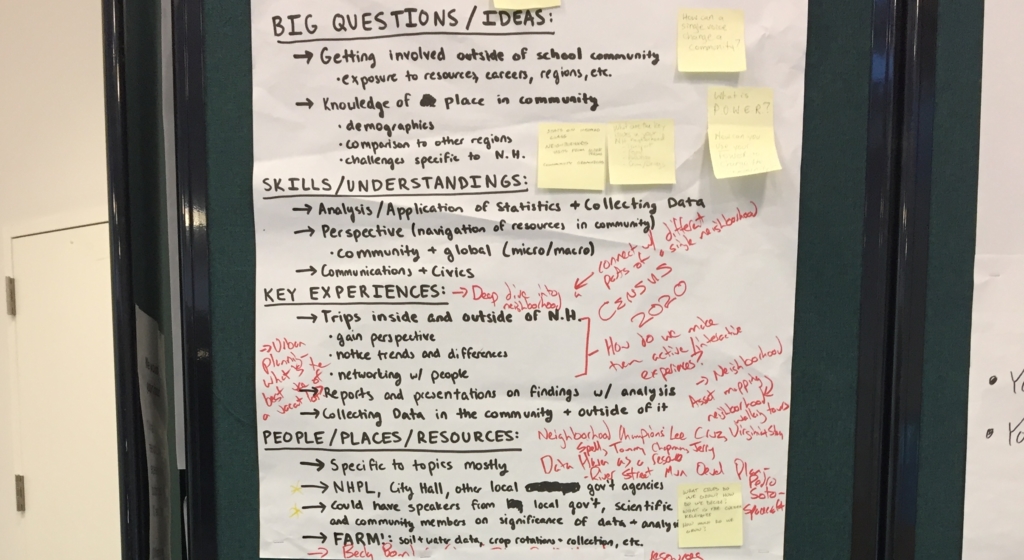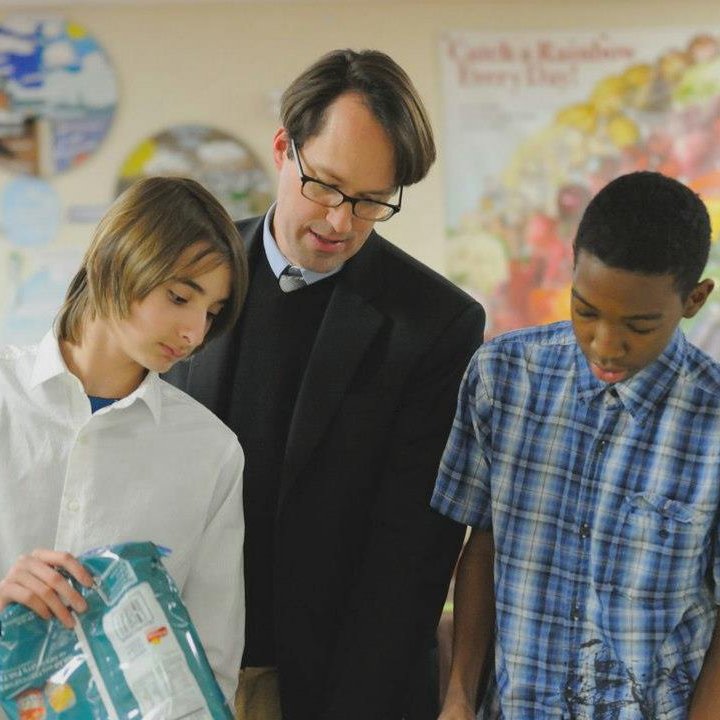
This spring and summer, Common Ground is trying to do something we’ve never done before. Well, two things actually.
We’re trying to build a new, integrated 9th grade experience. Imagine four big units of study, each lasting a quarter of the school year, tackling really big questions like, “How do we feed ourselves, and what does our food tell us about ourselves?” Imagine these units bring together teachers and content from four different subject areas — math, English, social studies, and science — and are also built to help students grow as leaders and human beings. Imagine these units all culminate in big products and performances for public audiences — for instance, an open mic performance for community and family members. Imagine that students have the whole morning, 8-11:30, every day of the week for the whole school year to do this deep, challenging, real-world work.
The way we’re trying to build this 9th grade experience is also different than anything we’ve done before. We’re trying, as best we can, to have students, their families, and our neighbors in New Haven at the table as co-creators of this curriculum. For teachers who are used to building their courses from the ground up, and taking full ownership of what they teach, this can feel like a sea change. We don’t know of other schools that have tried to do this either, so we are making the road by walking.
What’s this like? It’s amazing, and hard, and so far from perfect. Here are some moments that stand out …
150 students, family members, neighbors, staff, and partners filled out a survey asking them big questions about what Common Ground students should learn and experience, what big challenges they should tackle, and what community resources can help them do so. We printed out all the results, color coded them by who said what, and sat down to sort them into big themes.

Kenny, Tupac, and Kaleem -- Common Ground students -- worked with youth organizer Hiram Rivera to facilitate conversations in every guidance group, grades 9 to 11. Tupac then presented the themes from these conversations to all staff and many community members at one of our community curriculum workshops.

At two community workshops, an incredible mix of teachers, alumni, students, families, and partners showed up to help us make sense of the survey results, and then draft up ideas for big projects and units of study. At the end of the workshops, some participants expressed excitement, and surprise: The request for input felt real, and different than anything they experienced before.

Themes emerged from surveys and workshops: more outdoor experiences, opportunities to explore identity and community, the importance of skills for communication, action, and problem-solving that push beyond traditional academics. Community members and our teachers turned this feedback into rich ideas for units and projects -- for instance, asking every student to create their own individual educational plan (IEP), sharing how they learn best with their teachers.
What’s been happening with the feedback and ideas that the community has provided to date? Read this post on Common Ground's web site to hear more of the story.

